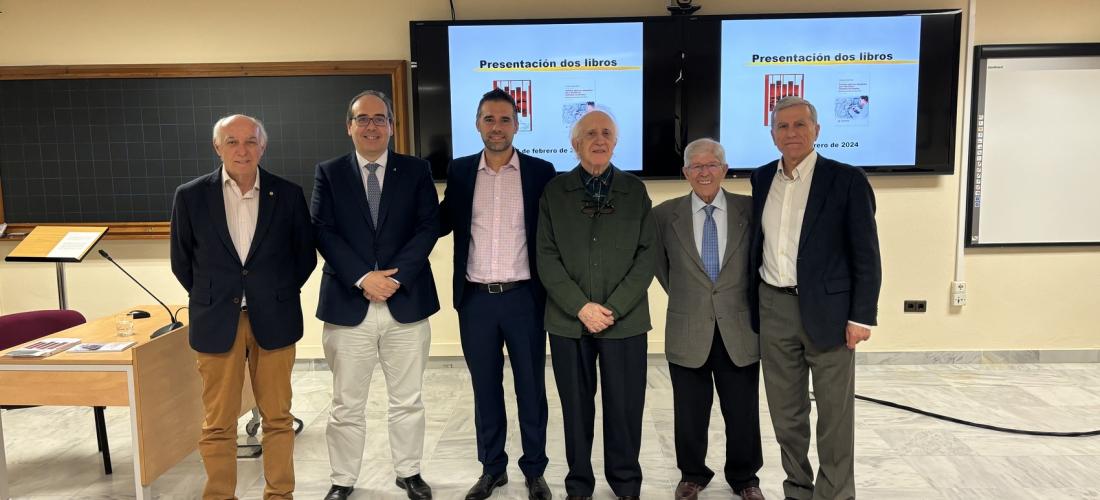Presentation of two literary works at the ETSI
On February 8, the official presentation ceremony of the books "Engineering: The Forging of the Artificial World. 2nd Edition" , written by the professor and professor of Engineering at Systems and Automatics of the University of Seville, Javier Aracil Santonja, and "Random binary signals to identify non-linear systems. Reissue of Javier Aracil's thesis ", written by Francisco Javier Muros. The event, held in the Juan Larrañeta Room, was chaired by Andrés Sáez Pérez, director of the Higher Technical School of Engineering of the University of Seville, Antonio Gómez Expósito, director of the Endesa Chair, and José María Bueno Lidón, president of the Andalusian Industrial Research and Cooperation Association, AICIA.
Jaime Domínguez Abascal, president of the Royal Academy of Engineering, was also scheduled to attend the event, but he was forced to be absent due to official business.
Engineering: The Forging of the Artificial World
Engineering includes the design, construction and exploitation of the components of the artificial world, in which our lives develop and without which our subsistence would be problematic. Despite this, it has not been the object of the attention it deserves for its decisive intervention in the forging of that world of ingenuity, made by and for humans, and based on the remodeling of nature in accordance with utilitarian objectives with which to satisfy our needs and desires. In intellectual circles, the tendency has been dominant to consider it simply as an application of science, without granting it any specificity or higher-ranking entity, being reduced to a subordinate task, although it is having a crucial influence on our society. This has ended up producing a distorted image of engineering in public opinion. This book questions this point of view in depth, trying to restore to engineers their determining role in the invention and manufacture of the artificial world that shelters us, and in which we achieve a life endowed with greater well-being than in the natural world.
The academic of the Royal Academy of Engineering, Javier Aracil, has written this reflection (corrected and expanded from the first edition) in which he investigates the specific and autonomous features that characterize the way of acting of engineers, who have produced the environment populated with profitable artifices that characterizes our species.
Random binary signals to identify nonlinear systems. Reissue of Javier Aracil's thesis.
This work presents the reissue of Professor Javier Aracil's thesis, defended in 1969, and which was differential for various reasons. On the one hand, it was a pioneer in its time as it was one of the first engineering theses in Spain, since previously the Law on the Regulation of Technical Education of 1957 homologated the title of Spanish engineer to that of doctor. Not in vain, it had the honor of being the first thesis in Industrial Engineering of the School of Industrial Engineers of Madrid read in public before a panel of five members, as is currently customary.
Furthermore, the thesis has a high theoretical value, since it generalizes procedures based on the transfer function, used at that time in linear systems, for non-linear systems. To do this, Professor Aracil demonstrated the equivalence between random binary signals and Gaussian signals, and experimentally developed a generalized intercorrelator. Proof of the relevance of the thesis was its publication in the prestigious magazine IEEE Transactions on Automatic Control, presumably the first contribution to it from a Spanish school of industrial engineers.
These milestones speak of the interest of a thesis that broke barriers in its time, and that amply justify this reissue.
